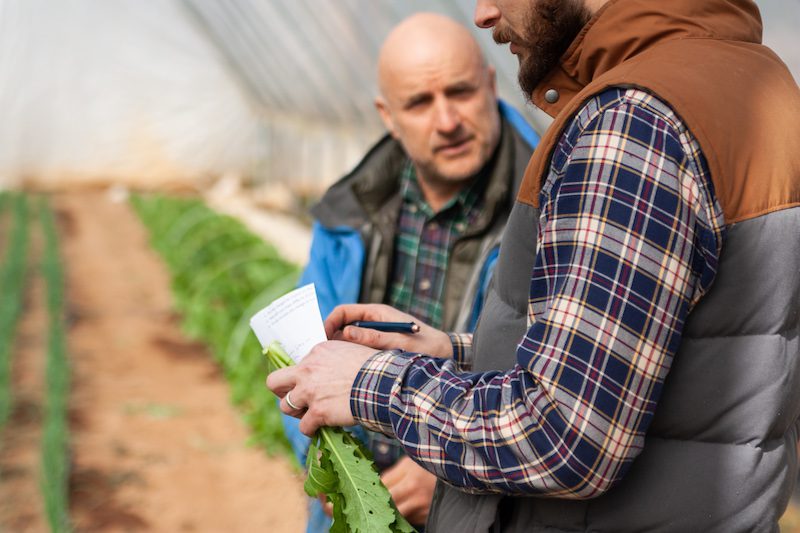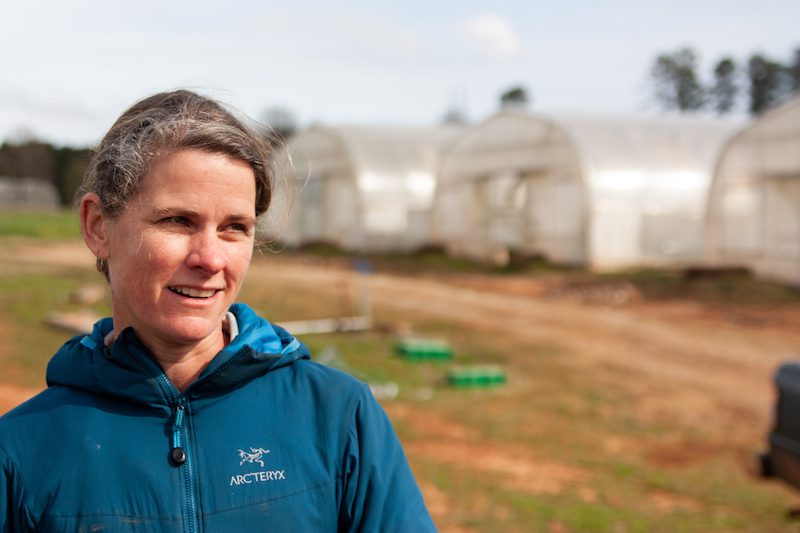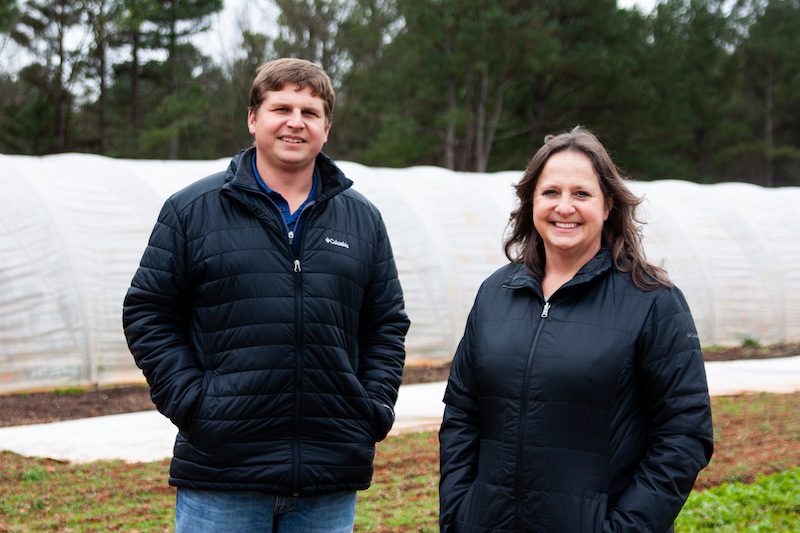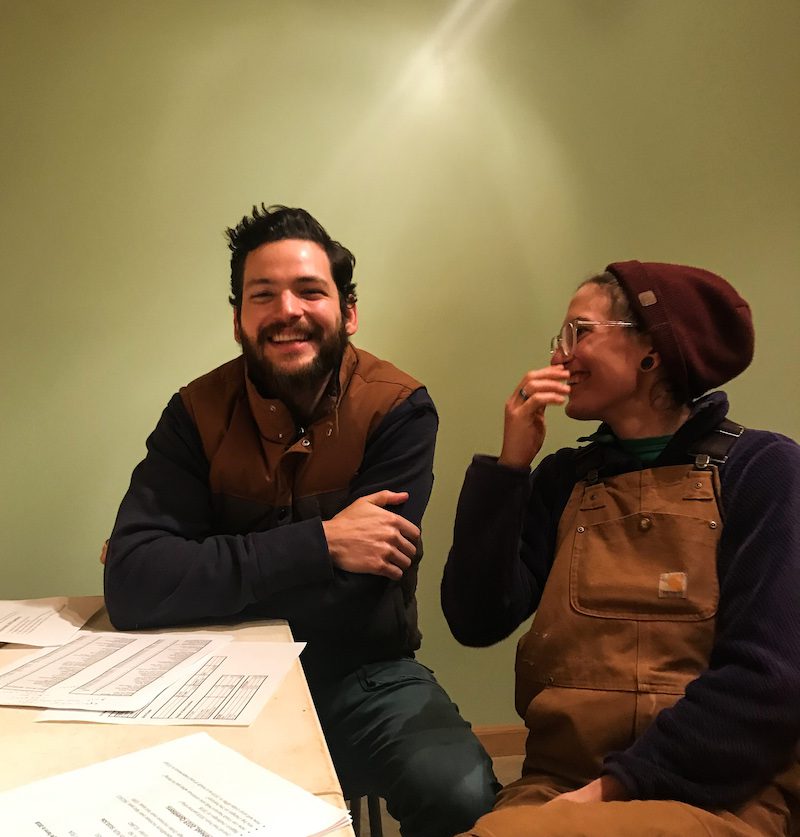Have you ever built a budget? For many of us, this dreaded activity is a necessary part of being human, allowing us to maintain a semblance of control over the otherwise impending chaos of responsibilities we daily bear. Among many other things, we proactively account for such far reaching obligations as electricity bills, feeding ourselves and our families, haircuts, mortgages, charitable giving and so on, ad nauseum. Imagine now that on top of these forward-thinking activities in the race to stay above water, you must also factor in unpredictable weather, employee turnover, nagging pests, devastating disease, and resultant fluctuations in market supply and demand.
Sound fun? This is just a glimpse into the life of a small organic farmer.

The men and women who provide our daily sustenance carry a weight on their shoulders that would easily cause the most driven of us to crumble into a new career path. Without a doubt, it takes an abnormal person to succeed in this line of work. The farmers who grow for Fresh Harvest are incredibly diverse in their personalities and methodologies, but amid the array of different characteristics lie two core attributes: intense passion for growing food and a deep-seated resolve to plan.
Vegetables are finicky little doodads. It can be difficult to connect with that reality when our only exposure to them is at the dinner table. But think about how quickly they turn to mush when exposed to warm air or even just too much time in the refrigerator. Let’s just say if I had a choice to be born into this world as anything, with the hopes of sticking around for a while, a vegetable would be at the very bottom of my list. One of the primary ways to ensure the survival of a plant from seed to plate is to invest the time necessary into figuring out how it will fit into the overall system of the farm and market.

Josh Plymale of Row by Rowe Farm in Luthersville told us that “During the winter months we do our best to make a good plan for the coming year and execute accordingly. Overproduction is costly, as we invest in a lot of labor and inputs between seed and sale. While we have the ability to compost, we prefer to have it eaten or sold!”
There are literally hundreds of questions a successful farmer must ask when weighing the overwhelming amount of factors that could affect their livelihood. So, in the spirit of community supported agriculture (CSA), let’s turn the table and ask ourselves a question. How are we, Atlanta’s community of conscious consumers, supporting our farmers in this strenuous process of growing the food that fuels our lives?

The answer is simple: we play our part by committing our sustained demand. By allowing our farmers to bank on Fresh Harvest customers’ ongoing consumption of their produce, we effectively mitigate many of the risks that could otherwise threaten their ability to continue operating. However Atlanta’s consumers choose to eat local produce, whether it’s via restaurants, at the market, through a Fresh Harvest home delivery or some combination, the key is consistent and predictable consumption.
Nicolas Donck of Crystal Organic Farm recently told us, “Working with you has been a real catalyst for me. You guys will take 300 heads of Little Gem lettuce when I really need to sell it. That’s one time and it’s gone. So cool!” This type of win is only possible when a large group of consumers choose to commit their sustained support for local food.

How does it actually work?
When FH customers take the time to tell us what they like and don’t like, we listen, compile the data and drive out to the various barns, offices and fields around Georgia to directly share those requests with our farmers before the season begins. Nothing is planned without the consumer in mind. While the weather’s still cold, we commit to buying agreed upon values of these items for specific upcoming weeks, often months or even years in advance. The farmers then buy their seed and get back to the consuming work of farming.
We’ve leaned heavily on our farmers over the years, only to find their full weight leaning heavily back on us. Ashley Rodgers, of Rodgers Greens and Roots Farm in Douglasville, is a great example of this balanced interdependence. At the beginning of a year, when we let her know that our customers want a thousand pounds of okra during the first two weeks of July, she’s taking a big risk by putting those seeds in the ground. Without a proven relationship, she might wonder, “Will Fresh Harvest customers actually buy all that okra?” Or we might ask, “Will Ashley actually grow all that okra?” As we continue to bet on eachother, the risks get less risky and the rewards grow greater.

Your demand for Ashley’s incredible produce is the glue that makes all that trust possible. And the reward for this shared burden of commitment? Local, land-regenerating farms are able to devote more time to the pursuit of their passion, while simultaneously filling our tables and our lives with a bounty of richly satisfying food, drawing each of us into a bigger and better story.
1 Comment
Add comment Cancel reply
You must be logged in to post a comment.

[…] then crop plan weeks, months and even years in advance with these local growers, providing them with a guaranteed […]